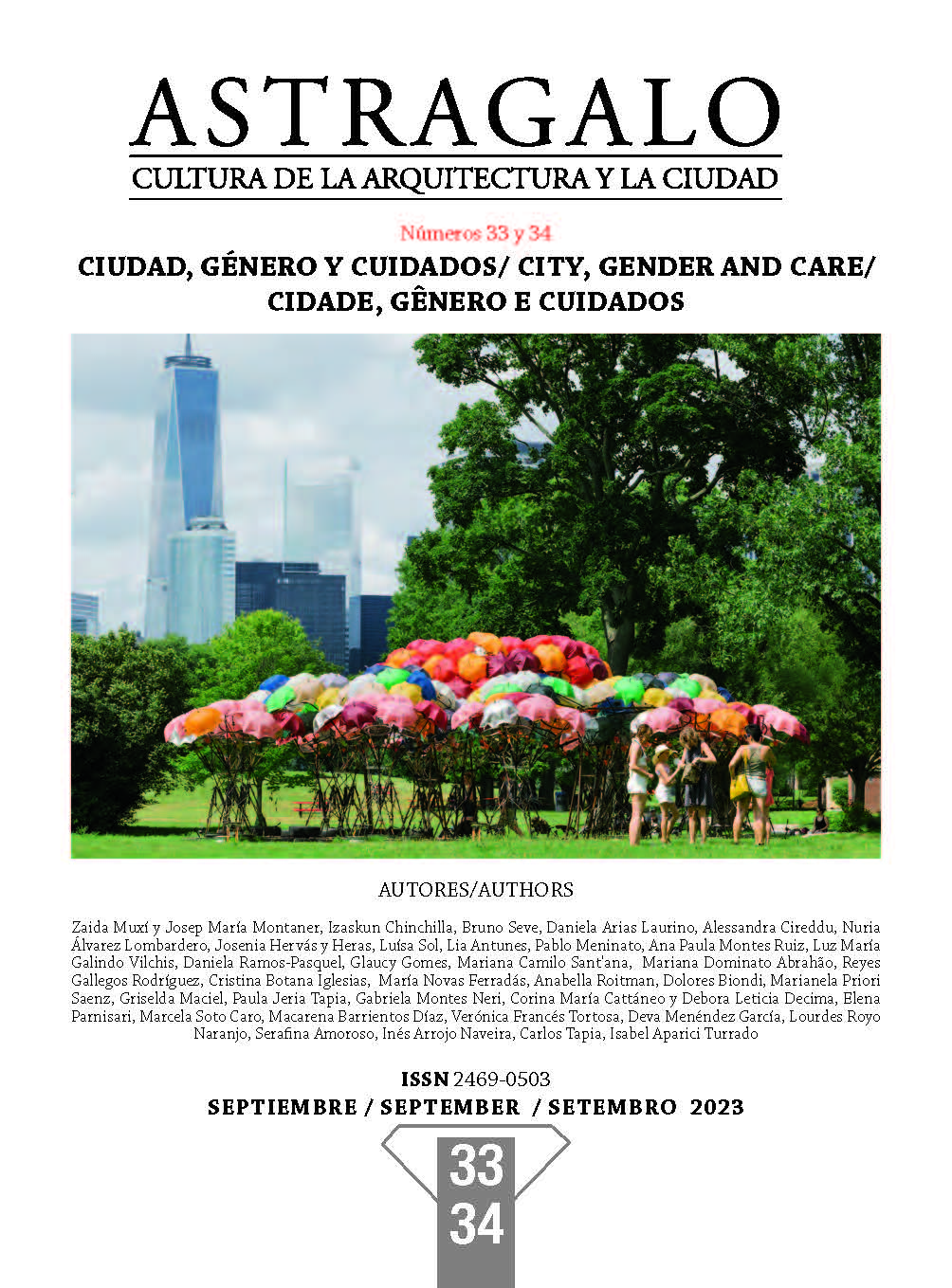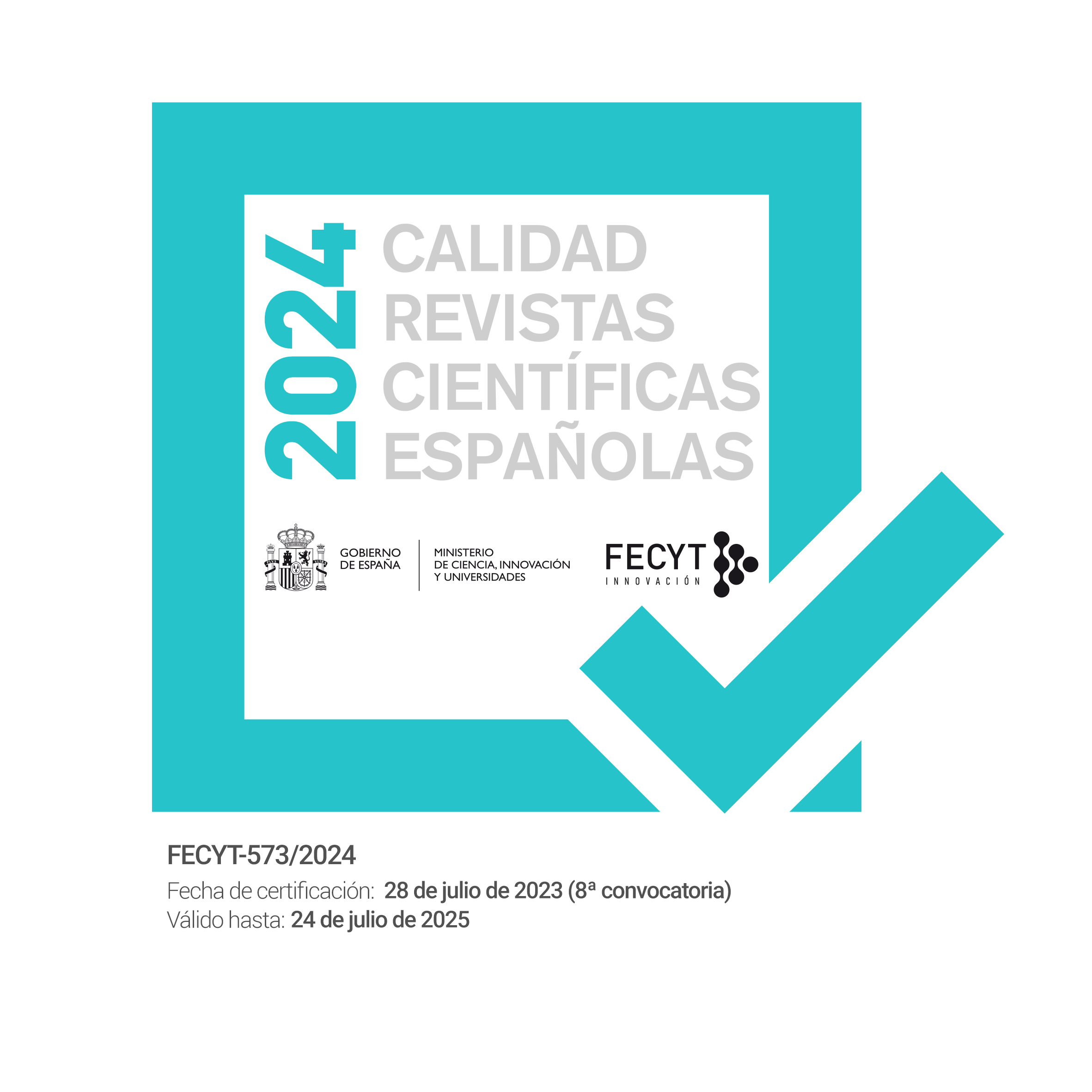Towards a more diverse and inclusive urbanism: Lina Bo Bardi's 'Citadel of Freedom'
DOI:
https://doi.org/10.12795/astragalo.2023.i33-34.09Keywords:
inclusive urbanism, equity, adaptive reuse, sustainable practices, Lina Bo BardiAbstract
This paper explores the contribution of Italo-Brazilian architect Lina Bo Bardi in creating a more equitable, inclusive, and sustainable urbanism. After providing a brief biographical overview, the essay examines some of the themes that influenced Bo Bardi's career, such as her provocative reflections on feminism and her interest and fascination with the “deep Brazil” arising from her stay in the city of Bahia. The central argument of the work is that, adopting the SESC Pompéia Factory Leisure Center as a case study, Bo Bardi developed a distinctive and original conception of the urban project. Distancing herself from the postulates of modern urbanism, Bo Bardi's ideas and design focused on activating public space through activities and events aimed at strengthening community ties. Under this new paradigm, the notion of "street" is reinterpreted and continually changes. Alternately or simultaneously, the streets of SESC Pompéia can function as outdoor and indoor spaces, ground-level and elevated walkways, sun terraces, and stages for performances. Bo Bardi conceived SESC Pompéia as a “citadel of freedom,” promoting the possibility of a more inclusive, equitable, multifunctional, and innovative urban experience for all.
Downloads
References
Anagnost, Adrian. 2019. “Limitless Museum: P. M. Bardi's Aesthetic Reeducation.” Modernism/modernity, Baltimore, MD: Johns Hopkins University Press, Volume 26, Number 4. 687–725.
Anelli, Renato. 2016. “Recycling and Restoration.” En Sustainable Lina. Lina Bo Bardi’s Adaptive Reuse Projects, editado por Annette Condello y Steffen Lehmann. Cham: Springer International Publishing. 97-116.
Bo Bardi, Lina. 1986. “The Pompeia factory.” Reimpreso en Cidadela da Liberdade. Lina Bo Bardi e o Sesc Pompéia, editado por André Vanier y Marcelo Ferraz. 2013. 152-154.
Carboncini, Anna. 2014. “Lina Bo Bardi and P. M. Bardi: fragments of a dialogue.” En Lina Bo Bardi 100: Brazil's alternative path to modernism, editado por Andres Lepik y Vera Simone Bader. Ostfildern: Hatje Cantz Verlag. 185-190.
Carvalho Ferraz, Marcelo. 2019. Lina Bo Bardi. São Paulo: Edições Sesc São Paulo.
Colomina, Beatriz. 2022. “Afterword: Trans-species Architecture.” En Lina Bo Bardi: Material Ideologies, editado por Monica Ponce de Leon. Princeton, NJ: Princeton University Press. 250-255.
Comas, Carlos Eduardo. 2009. “LINA 3x2,” ARQ Texto, No.14. 146-189.
Cucchi, Virginia, “Women and Architecture.” 2020. Accedido el 19 de marzo, 2023. Disponible en https://www.floornature.com/design-trends/strongwomen-and-architecture-strongbr-15514/
da Costa Meyer, Esther. 2019. “Becoming Lina Bo Bardi: An Ideologial Odissey.” En Habitat: Lina Bo Bardi, editado por Adriano Pedrosa. Mexico City: Museo Jumex. 52.
Ferraz, Marcelo. 2012. “Lina Bo Bardi: Together. The Making of SESC Pompéia by Marcelo Ferraz.” Accedido el 29 de diciembre, 2022. Disponible en https://linabobarditogether.com/2012/08/03/the-making-of-sesc-pompeia-by-marcelo-ferraz/.
Ferraz, Marcelo. 2013. “In an old barrel factory...” En Cidadela da Liberdade. Lina Bo Bardi e o Sesc Pompéia Vanier, editado André Vanier y Marcelo Ferraz. 159-161.
Frampton, Kenneth. 2020. Modern architecture: a critical history. London: Thames and Hudson.
Lefaivre, Liane, de Roode, Ingeborg y Fuchs, Rudi. 2002. Aldo Van Eyck: The Playgrounds and the City. Amsterdam: Stedelijk Museum.
Lima, Zeuler. 2013. “Lina Bo Bardi and the Architecture of Everyday Culture.” Accedido el 3 de marzo, 2023. Disponible en https://placesjournal.org/article/lina-bo-bardi-and-the-architecture-of-everyday-culture/?cn-reloaded=1.
Lima, Zeuler R., y Pallamin, Vera M. 2008, 7. “Reinventing the Void: São Paulo’s Museum of Art and Public Life along Avenida Paulista.” En Ordinary Places/Extraordinary Events. Citizenship, Democracy and Public Space in Latin America, editado por Clara Irazábal. London & New York: Routledge. 59-83.
Lima, Zeuler R. M. de A. 2019. Lina Bo Bardi, Drawings. Princeton, NJ: Princeton University Press; in association with Fundació Joan Miró.
Martí, Silas. 2018. “Teatro, Oficina, Torre.” Accedido el 2 de febrero, 2023. Disponible en The Avery Review 30. Disponible en http://averyreview.com/issues/30/teatro-oficina.
Meninato, Pablo. 2018. Unexpected Affinities. The History of Type in the Architectural Project. Boca Raton, FL: Routledge | Taylor & Francis.
Pereira, Juliano Aparecido. 2008. “Lina Bo Bardi: Bahia, 1958-1964.” Accedido el 39 diciembre, 2022. Disponible en https://aloisiomagalhaesbr.wordpress.com/historia-da-arte/coletivas/coletivas-nacionais/lina-bo-bardi-bahia-1958-1964/.
Sánchez Llorens, Mara, Fontán del Junco, Manuel y Toledo Gutiérrez, María. 2018. Lina Bo Bardi: tupí or not tupí. Brasil, 1946-1992. Madrid: Fundación Juan March Editorial de Arte y Ciencia.
Sánchez Llorens, Mara y Garrido López, Fermina. 2018. “Lina Bo. Una antifeminista moderna”. En Estudios de Género. Memoria DEL 56.º Congreso Internacional de Americanistas. DOI: 10.14201/0AQ0251_9.
Soares, Dirceu. 1978. “Um centro de Lazer na cidade morta”. Entrevista a Lina Bo Bardi. Folha de São Paulo, 19 de enero de 1978.
Strauven, Francis. 2007. Accedido el 14 de julio, 2023. “Aldo van Eyck – Shaping the New Reality from the In-between to the Aesthetics of Number.” CCA Study Centre Mellon Lectures. Disponible en http://www.cca.qc.ca/system/items/1947/original/Mellon12-FS.pdf?1241161450.
Subirats, Eduardo. 2013. “Architecture and poetry.” En Cidadela da Liberdade. Lina Bo Bardi e o Sesc Pompéia, editado André Vanier y Marcelo Ferraz. 155-158.
Team 10 Online. Accedido el 14 de julio, 2023. Disponible en http://www.team10online.org/team10/eyck/index.html.
Tzonis, Alexander y Lefaivre, Liane. 2018. “The Rebel Humanist. Aldo van Eyck (1918-1999).” Accedido el 7de julio, 2023. Disponible en https://arquitecturaviva.com/articles/the-rebel-humanist.
Vainer, André y Ferraz, Marcelo. 2013. Cidadela da Liberdade. Lina Bo Bardi e o Sesc Pompéia. São Paulo: Edições Sesc São Paulo.
Withagen, Rob y Caljouw, Simone R. 2017. “Aldo van Eyck’s Playgrounds: Aesthetics, Affordances, and Creativity.” Accedido el 7de julio, 2023. Disponible en https://www.frontiersin.org/articles/10.3389/fpsyg.2017.01130/full.
Zevi, Bruno. 1987. “Factory of signs”. Publicado originalmente en Revista L’Expresso, Roma, mayo de 1987. Reimpreso en Cidadela da Liberdade. Lina Bo Bardi e o Sesc Pompéia Vanier, editado André Vanier y Marcelo Ferraz. 2013. 154-155.
Downloads
Published
How to Cite
Issue
Section
License
Copyright (c) 2023 Pablo Meninato

This work is licensed under a Creative Commons Attribution-NonCommercial-ShareAlike 4.0 International License.


















